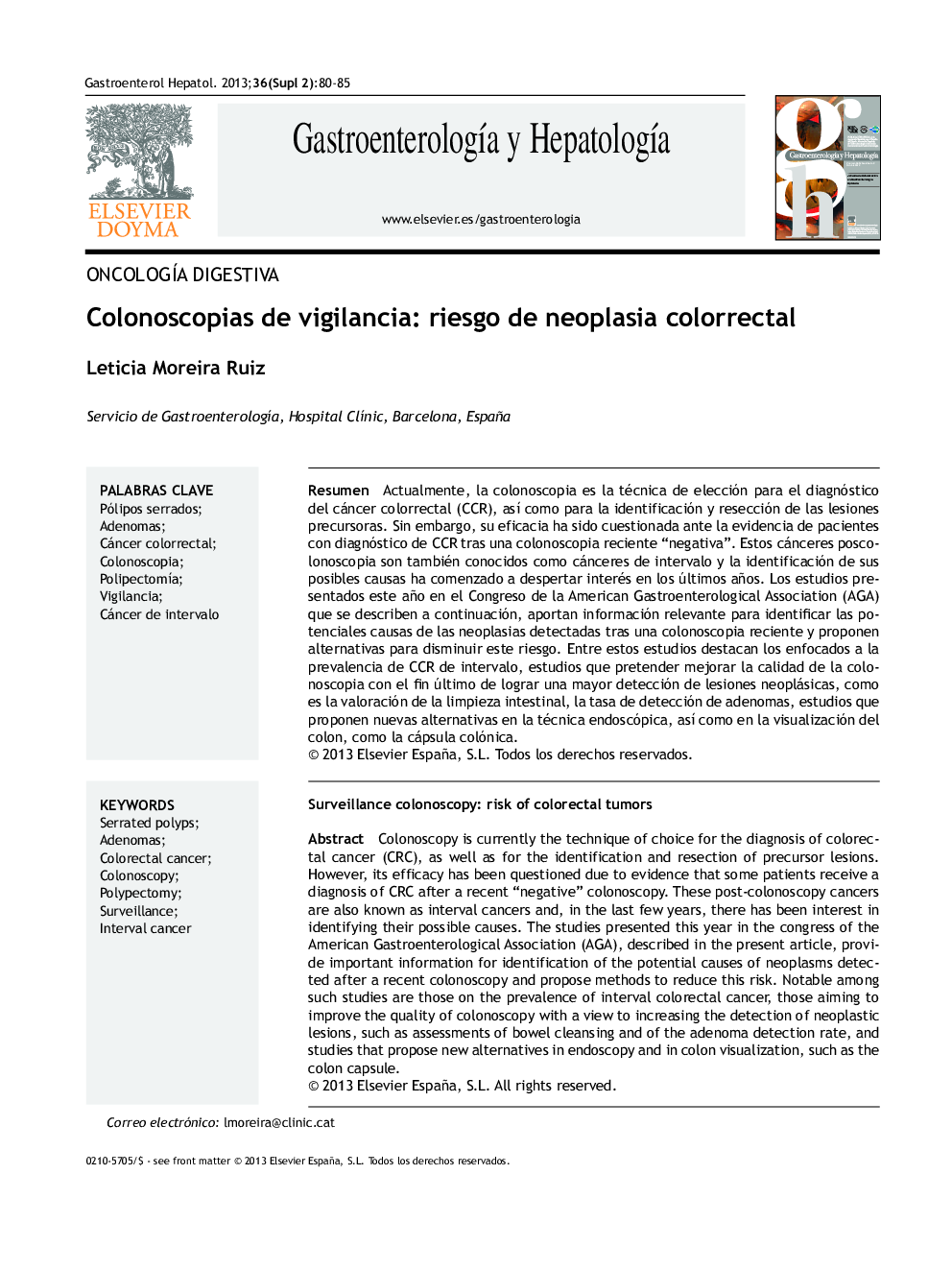| Article ID | Journal | Published Year | Pages | File Type |
|---|---|---|---|---|
| 3288300 | Gastroenterología y Hepatología | 2013 | 6 Pages |
Abstract
Colonoscopy is currently the technique of choice for the diagnosis of colorectal cancer (CRC), as well as for the identification and resection of precursor lesions. However, its efficacy has been questioned due to evidence that some patients receive a diagnosis of CRC after a recent “negative” colonoscopy. These post-colonoscopy cancers are also known as interval cancers and, in the last few years, there has been interest in identifying their possible causes. The studies presented this year in the congress of the American Gastroenterological Association (AGA), described in the present article, provide important information for identification of the potential causes of neoplasms detected after a recent colonoscopy and propose methods to reduce this risk. Notable among such studies are those on the prevalence of interval colorectal cancer, those aiming to improve the quality of colonoscopy with a view to increasing the detection of neoplastic lesions, such as assessments of bowel cleansing and of the adenoma detection rate, and studies that propose new alternatives in endoscopy and in colon visualization, such as the colon capsule.
Keywords
Related Topics
Health Sciences
Medicine and Dentistry
Gastroenterology
Authors
Leticia Moreira Ruiz,
